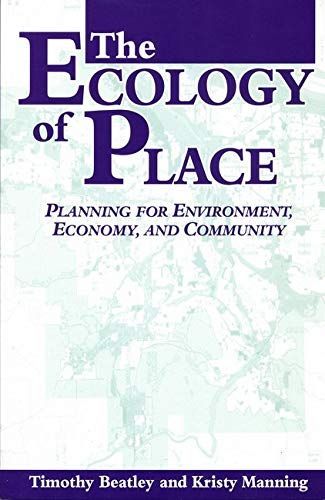
The Ecology of Place Planning for Environment, Economy, and Community
Current patterns of land use and development are at once socially, economically, and environmentally destructive. Sprawling low-density development literally devours natural landscapes while breeding a pervasive sense of social isolation and exacerbating a vast array of economic problems. As more and more counties begin to look more and more the same, hope for a different future may seem to be fading. But alternatives do exist. The Ecology of Place, Timothy Beatley and Kristy Manning describe a world in which land is consumed sparingly, cities and towns are vibrant and green, local economies thrive, and citizens work together to create places of eduring value. They present a holistic and compelling approach to repairing and enhancing communities, introducing a vision of "sustainable places" that extends beyond traditional architecture and urban design to consider not just the physical layout of a development but the broad set of ways in which communities are organized and operate. Chapters examine: the history and context of current land use problems, along with the concept of "sustainable places" the ecology of place and ecological policies and actions local and regional economic development links between land-use and community planning and civic involvement specific recommendations to help move toward sustainability The authors address a variety of policy and development issues that affect a community -- from its economic base to its transit options to the ways in which its streets and public spaces are managed -- and examine the wide range of programs, policies, and creative ideas that can be used to turn the vision of sustainable places into reality. The Ecology of Place is a timely resource for planners, economic development specialists, students, and citizen activists working toward establishing healthier and more sustainable patterns of growth and development.